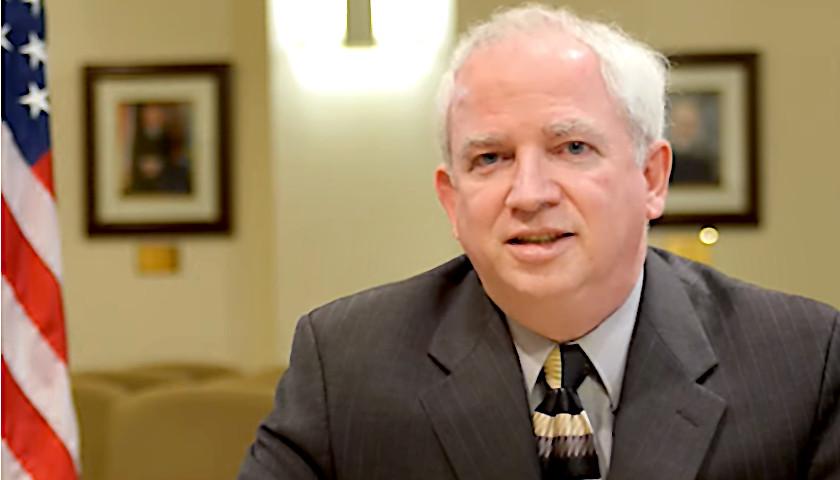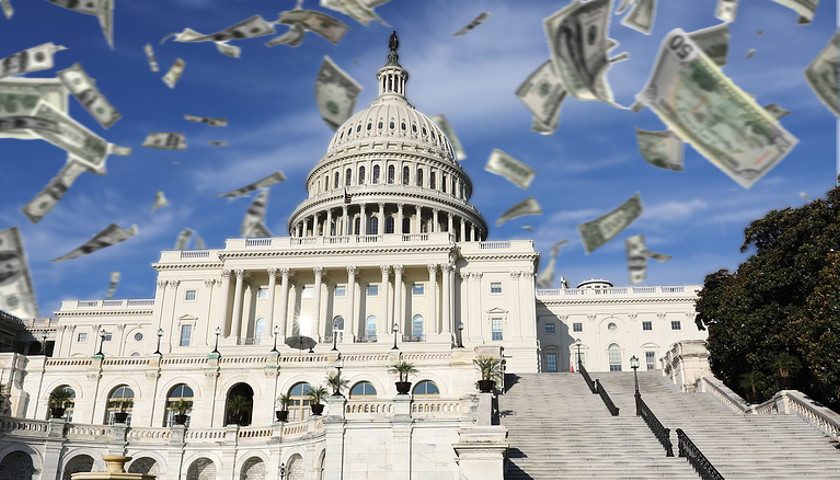LOS ANGELES, California – The second day of the State Bar of California’s (SBC) disbarment trial of Trump attorney John Eastman on Tuesday featured mostly direct and cross-examination of the prosecution’s star witness, former Pence attorney Greg Jacob. Jacob was put on the witness stand by the SBC to debunk Eastman’s advice that Vice President Mike Pence did not have the authority to reject electoral slates from states suspected of going to Joe Biden due to election fraud, but Jacob gave testimony to the contrary several times.
Eastman’s attorney Randy Miller asked Jacob about a memo he wrote where he stated that “scholars disagree” whether it’s the vice president’s responsibility to substantively deal with accepting electoral slates. Jacob admitted, “There is a section in the Constitution that is at best ambiguous whether the vice president can reject electoral slates.” He cited three legal scholars who wrote articles arguing that the vice president has somewhat of a substantive role in that area. He said this question was “debated and disputed” in law review articles.
Jacob said Hawaii encountered a similar contentious situation in 1961, when Hawaii’s electors submitted a slate of electors for Richard Nixon, then Democrats submitted a competing uncertified slate for John F. Kennedy. After court proceedings over the matter finished, it was determined that Kennedy really won, and so the slate for Kennedy was ultimately accepted.
When confronted about law review articles that appeared to conclude that the vice president has substantive authority in this area, Jacob dismissed them, saying the authors had “perverse incentives” to write articles that will become well read. One of those law review articles discussed how Thomas Jefferson and John Adams both ran into similar dilemmas when they were vice presidents.
In regards to delaying the certification — as opposed to rejecting it — another possible outcome that Eastman had laid out for the Trump administration, Jacob said he had not encountered a single law review article which contemplated that possibility.
Jacob admitted that as late as December 8, 2020, he did not know yet based on his research whether or not the Electoral Count Act (or part of it) was unconstitutional. He also said that he did not begin researching any of this issue until fall of 2020.
Another bombshell admission by Jacob was that “election irregularities” in Wisconsin may have swung that state from Trump to Biden. He said this was due to Democrats providing illegal instructions regarding early ballots, allowing boxes to be accepted which should not have been. A court later found the instructions to be unlawful.
He contrasted this to the election irregularities in other states such as Pennsylvania, where he said the number of possible fraudulent ballots wasn’t more than the number of votes that Biden won by. He said officials around the country illegally waived election laws, citing COVID-19 as the reason, but asserted the number of illegal ballots wasn’t enough to change the election results.
Jacob acknowledged that Democrats wanted to reject slates of electors in the last three presidential elections where a Republican won, although he said they wanted Congress to reject them, not the vice president. He pointed out that several Democratic members of Congress did vote to reject them.
Jacob said there wasn’t any valid alternate slate of electors submitted in 2020 because they weren’t officially from the government. Jacob said the alternate slates came from Republican officials, not state legislators or others in the government.
SBC attorney Duncan Carling repeatedly tried to get Jacob to discuss why protesters showed up for J6, prompting Miller to object that it was speculation since Jacob wasn’t a part of the protest. Judge Yvette Roland allowed him to testify anyway. Jacob cited the violence that occurred and the calls to “hang Mike Pence,” stating that the protesters showed up expecting violence. He also spoke lengthily and dramatically about his experience on J6.
Jacob revealed that he drafted an article during J6, while he and Pence were holed up concerned about the protesters. He decided later not to publish it, telling the court that he didn’t like cancel culture and had concerns it might breach executive privilege.
Maricopa County Recorder Stephen Richer is scheduled to testify on Thursday. The trial is live streamed and is expected to run through the end of next week. The first day is covered here.
– – –
Rachel Alexander is a reporter at The Arizona Sun Times and The Star News Network. Follow Rachel on Twitter. Email tips to [email protected].
Image “John Eastman” by iSCOTUS.





